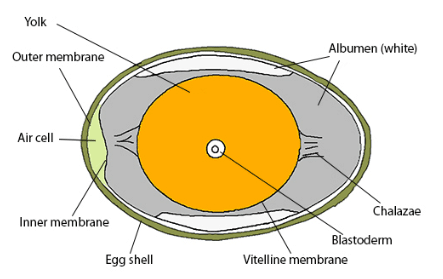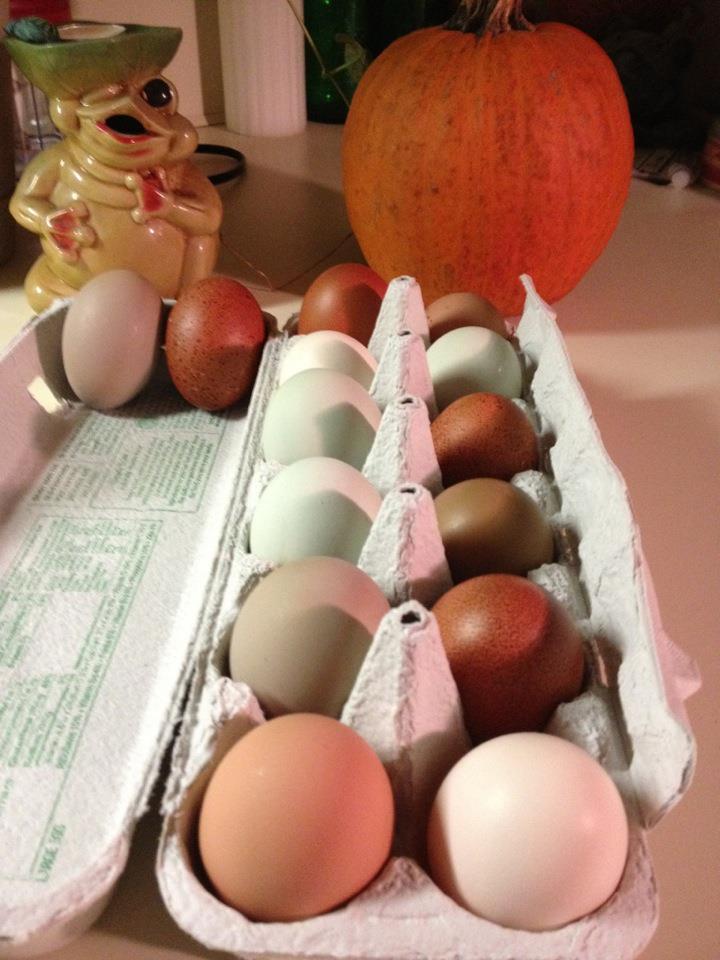The importance of proper collection and storage of the egg before incubation is often overlooked by someone new to hatching. Hatching eggs suffer from reduced hatchability if not properly cared for before incubation. Most people are not aware that even before incubation starts, the embryo is already forming. No, this does not mean that you are eating a baby chick by enjoying an egg for breakfast, but it does become easily apparent once you've visited the fertilized egg's anatomy.

If you have a rooster in your flock, odds are that the egg will be fertilized. A fertilized egg will always have what is called a "Blastoderm", which is a small whitish target on the yolk. The definition of a Blastoderm: The germination point in an ovum from whence the embryo develops. So, let's get on with the proper collection and storage of your hatching eggs!
Below are tips to help you maintain hatching egg quality:
- Collect eggs several times per day. More so if the weather is above 80 degrees or below 50
- Choose eggs from mature hens. Do not collect mishapen eggs, small eggs, or an obvious double yolked egg for hatching
- Do not save dirty eggs. Slightly soiled are ok, however do not wash the eggs
- Do not collect for more than 10 days. A fertilized egg loses hatchability beyond this time
- Store eggs in a cool and humid area. Ideally around 60 degrees with 50% or more humidity
- Store the eggs pointy side down
- Turn your eggs at least once per day
- Bring cool eggs to room temperature before placing them in the incubator to prevent condensation
Happy Hatching!




